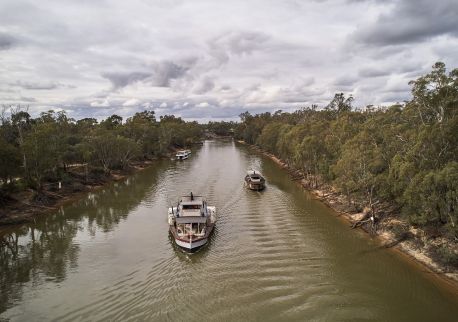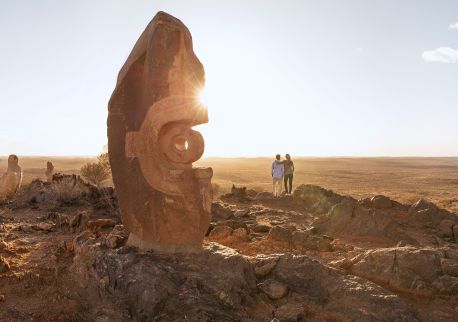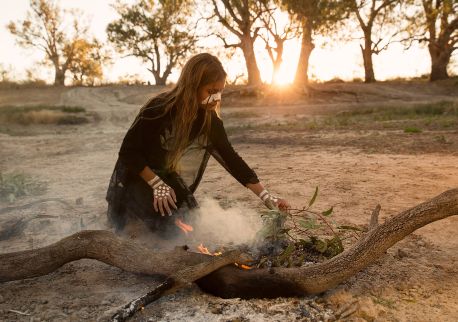Dividing Range
Sunday 06 April 2025 to Sunday 27 April 2025 (DAILY event)
Overview
Taking its title from that of a featured work by North-East Victoria-based artist Kim Westcott, Dividing Range brings together a selection of photographs, prints and paintings from the Museum’s collection loosely connected by their explorations of human relationships to light, ways of seeing and the environment.
In the entry space, a 1969 abstract painting by Robin Wallace-Crabbe flaring yellow sits between more recent large-scale photographic works by James Farley and Justine Varga produced through direct exposure and physical marking of photographic paper and film. These are counterpointed by a small photograph by Mark Hinderaker of a thermonuclear explosion pictured on a television screen, a microscopic image of plant pollen by Stephanie Valentin and Silvi Glattauer’s moonlit still-life.
At the heart of the exhibition works by Gloria Petyarre, Fiona Hall, Marion Hardman, and Ingeborg Tyssen convey intimate relationships with place and flora.
In the final section larger photographic works by Brook Garru Andrew, Mark Kimber, Sam Shmith and Amanda Williams illustrate ways in which Western ideas of grand and sublime landscapes are harnessed or referenced for rhetorical purposes by artists. These are augmented by urban-inspired works by Robert Jacks and David Jolly.
























